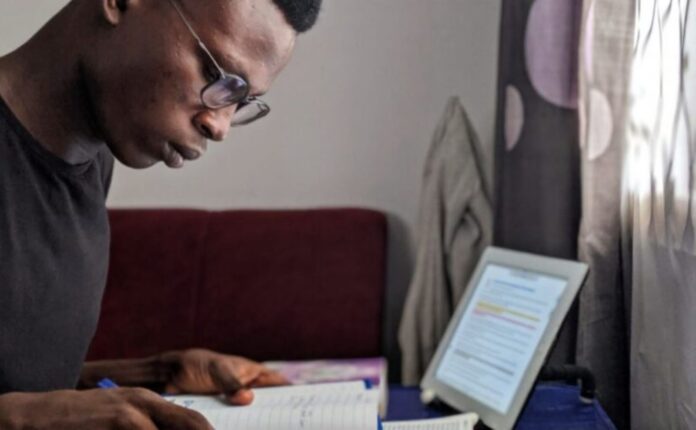What is IELTS?
IELTS stands for the International English Language Testing System. It is by far the most popular English language test, hence why a number of higher education institutions will ask that you complete the test. In under three hours, the IELTS test assesses the full range of your English skills: speaking, listening, reading and writing.
There are two IELTS tests available – IELTS Academic or IELTS General Training. The test you choose should be based on what it is you want to do.
IELTS Academic – measures whether your level of English language proficiency is suitable for an academic environment. It reflects aspects of academic language and evaluates whether you’re ready to begin training or studying.
IELTS General Training – measures English language proficiency in a practical, everyday context. The tasks and tests reflect both workplace and social situations.
If you are taking the IELTS test to support a UK visa application to work, live or study in the UK, you may need to take the IELTS for UK Visas and Immigration (UKVI) Academic or General Training or the IELTS for Life Skills test.
Given that there are three versions of IELTS with different purposes and content, make sure you personalise your exam training depending on which type of IELTS you need to complete in order to maximise your chances of success.
Prepare for the IELTS General Training and IELTS Academic
It’s advisable to be savvy when preparing for the IELTS test. Think about your current language level and what score you would like to achieve and then prepare accordingly. Also, be sure to factor in how much time you have prior to your exam date so that you can manage your time appropriately.
According to a number of online sources, if your English level is intermediate, then you will need around three months to prepare for the test. However, if your language is at a beginner’s level, then you will need around six months of preparation.
The reading section – For this section, you will be given one hour to read the texts and answer 40 questions. The texts used for the IELTS General Training are taken from advertisements, books, magazines and newspapers. The texts for IELTS Academiccan come with diagrams, graphs or illustrations. Do not lose too much time on one particular question. Read as many similar texts as possible for your preparation, making sure that you learn to scan and skim to grasp the information from the texts as fast as possible. The most important thing here is to learn to read a text critically and grasp information from it as fast as possible.
The writing section – You will have one hour to complete two tasks. For the IELTS General Training test, you will be asked to write a letter of 150 words in a personal or formal style and to write an essay. The IELTS Academicversion includes the explanation of a graph, table, chart or diagram (150 words) as well as an essay of 250 words. Learn to recognise how long 150 and 250 words look like in your handwriting. In order to prepare for this section, try writing clear paragraphs that contain one main idea, also get used to reserving five minutes for proofreading your text after you finish.
The listening section – The listening section lasts 30 minutes, it includes four passages and a total of 40 questions. Do not feel discouraged if you don’t understand some of the words. Not everything might be relevant for answering the questions. In order to prepare for this section, try listening to podcasts and making notes about the key topics at the same time, it also helps if you can have regular conversations with native English speakers
The speaking section – This test is typically conducted on a different day from the other sections. The test is conducted as a face-to-face interview and you will talk about daily familiar topics. Train yourself to relax and speak fluently. Here is a really good list of all the topics that may be covered within the speaking section. A good tip for preparing for this section is to ask English-speakers around you to talk in English with you. You can also record yourself talking and observe your progress in time. The key is to speak the language as much as possible.
Here are a few other top tips to keep in mind when preparing for the IELTS test:
Free training: In many countries, if you register for an IELTS test through the online British Council registration system, you can get 30 more hours of free training.
Immerse yourself: Try and cram in some practice time wherever possible. Mix your English training in your daily life with fun activities. Listen to the BBC, watch English TV and radio channels, play board games with native English speakers, read the online press and much more.
Invest in an English tutor: If you are not the self-taught type or if you feel you need a more guided learning programme, send B&20 British School an email to register your interest for a pre-IELTS English Training session.
But most importantly, don’t be nervous! Stay calm, speak as fluently as possible and most of all, try your best.






